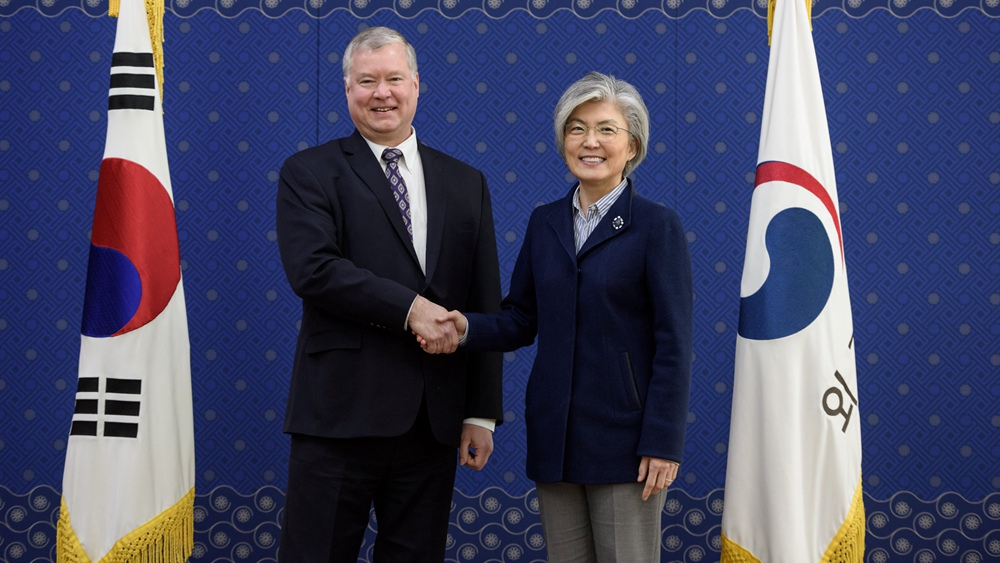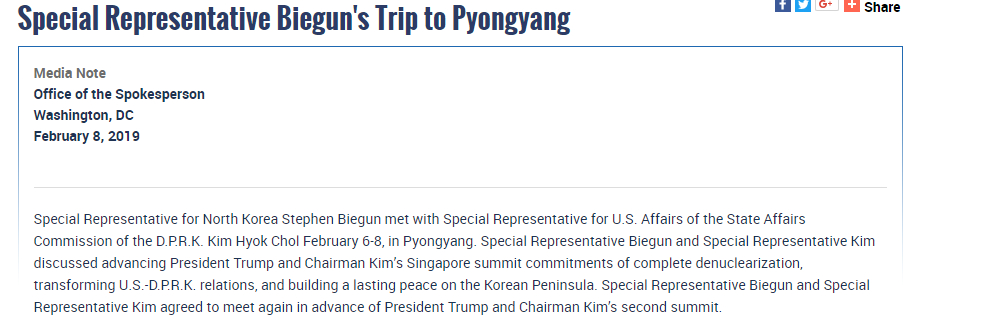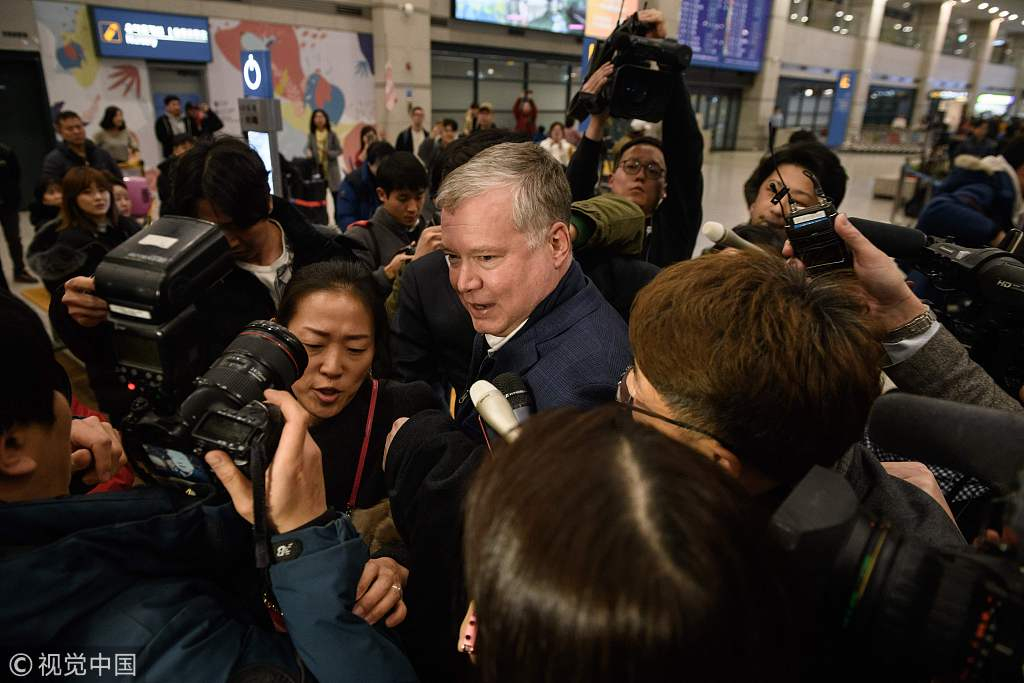
Asia Pacific
08:14, 09-Feb-2019
U.S. envoy: Talks with DPRK productive
Updated
17:40, 09-Feb-2019
CGTN
00:41

Stephen Biegun, U.S. special representative for the Democratic People's Republic of Korea (DPRK), said on Saturday that talks in Pyongyang with the DPRK side were productive.
Biegun made the remarks during his meeting in Seoul with Republic of Korea (ROK) Foreign Minister Kang Kyung-wha, saying the DPRK and the U.S. have been making efforts for substantial progress though issues remained to be tackled.
The U.S. envoy visited the DPRK for three days through Friday ahead of the planned second summit in Vietnam in late February between DPRK leader Kim Jong Un and U.S. President Donald Trump.
Biegun explained the outcome of his Pyongyang visit to Kang, ROK's foreign ministry said in a statement without elaborating further.
The U.S. State Department said Biegun had agreed with his counterpart Kim Hyok Chol to meet again ahead of the summit, which Washington has said will take place from February 27-28 in Vietnam.
In their talks in Pyongyang from Wednesday until Friday, Biegun and Kim Hyok Chol "discussed advancing President Trump and Chairman Kim's Singapore summit commitments of complete denuclearization, transforming U.S.-DPRK relations, and building a lasting peace on the Korean Peninsula," the State Department said.

A screenshot of the U.S.State Department statement
A screenshot of the U.S.State Department statement
Biegun said last week his Pyongyang talks would be aimed at seeking progress on commitments made in Singapore and mapping out "a set of concrete deliverables" for the second summit.
He said Washington was willing to discuss "many actions" to improve ties and entice Pyongyang to give up its nuclear weapons and that Trump was ready to end the 1950-53 Korean War, which concluded with an armistice, not a peace treaty.
Biegun said Kim Jong Un committed during an October visit by U.S. Secretary of State Mike Pompeo to the dismantling and destruction of plutonium and uranium enrichment facilities and that "corresponding measures" demanded by the DPRK would be the subject of his talks.
At the same time, he set out an extensive list of demands that the DPRK would have to meet eventually, including full disclosure of its nuclear and missile programs, something Pyongyang has rejected for decades.

U.S. envoy for DPRK Stephen Biegun (C) arrives at Incheon International Airport, ROK, February 3, 2019. /VCG Photo
U.S. envoy for DPRK Stephen Biegun (C) arrives at Incheon International Airport, ROK, February 3, 2019. /VCG Photo
Trump, eager for a foreign policy win to distract from domestic troubles, has been keen for a second summit despite a lack of significant moves by the DPRK to give up its nuclear weapons program. He and Biegun have stressed the economic benefits to the DPRK if it does so.
Trump announced the plan for his second meeting with Kim in his annual State of the Union address on Tuesday, and on Friday revealed on his personal Twitter account that the city for the meeting will be the Vietnamese capital of Hanoi.
Trump said much work remained to be done in the push for peace with the DPRK, but cited the halt in its nuclear testing and no new missile launches in 15 months as proof of progress.
Pyongyang has repeatedly urged a lifting of punishing U.S.-led sanctions, a formal end to the war, and security guarantees.
(Cover: People gather during Lunar New Year in Pyongyang, DPRK, February 6, 2019. /VCG Photo )
Source(s): Reuters

SITEMAP
Copyright © 2018 CGTN. Beijing ICP prepared NO.16065310-3
Copyright © 2018 CGTN. Beijing ICP prepared NO.16065310-3